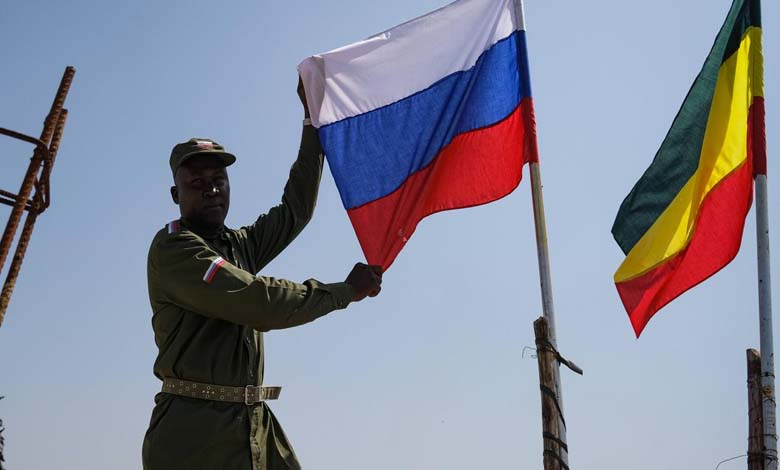With Weapons and Soldiers, the Russian Bear Strengthens Its Influence in the African Sahel

With military equipment and Russian experts, Moscow seeks to expand its influence in Sahelian countries and solidify its succession to France on the African continent.
Tatiana Dovgalenko, Head of the Africa Partnership Department at the Russian Ministry of Foreign Affairs, stated on Thursday that Russia “supports the Sahel Alliance by sending experts and military equipment to its countries.”
-
Broad Russian Diplomatic Engagement in Africa Paves the Way for Greater Influence
-
With the “African Initiative,” Russia Strengthens Its Influence in Burkina Faso
In a statement to the Russian agency Sputnik, the official clarified that the deployment of Russian military personnel and equipment in these nations aims to “help enhance counterterrorism capabilities and improve the combat effectiveness of national armed forces.”
She added that Russian experts are training military personnel in the Sahel and also members of the executive branch, emphasizing the importance of “strengthening the efforts of Burkina Faso, Mali, and Niger to ensure their national security and achieve their social and economic goals.”
-
Russia Maintains Positive Neutrality on Western Sahara Issue to Boost African Interests
-
Title: Provocative Step Allows Russian Soldiers to Enter US Base in Niger
Dovgalenko attributed the lack of financial aid to African countries to “Western sanctions,” explaining: “Due to sanctions, Russia has been unable to send funds for food aid.”
She continued: “The government had allocated the necessary funds for a program to supply local food to Zambia, Zimbabwe, Mozambique, Namibia, Niger, and Sudan. However, due to the sanctions imposed by Washington last November on Russian financial institutions, including those funding our donor projects within international organizations, it was not possible to transfer the funds.”
-
Algeria creates its isolation by punishing African countries joining the Atlantic initiative
-
Situations Worsen in Mali… What’s Happening in the African Country?
Radical Transformations
Sahelian countries experienced radical changes in 2024 after decades of Western dominance, marked by the withdrawal of French and American forces and the rise of Russian influence.
This strategic shift, following a series of military coups, raises the question of whether Russia can fill the void left by the West.
The nations of the “Sahel Triangle” (Mali, Burkina Faso, and Niger) are grappling with security instability. For over a year, these countries have been striving to overcome challenges following the withdrawal of U.S. and French forces and replacing them with Russian troops.
-
Russia Activates “Soft Power” in Africa
-
Observatory: Russia Transferred Syrian Officers to a Base in North Africa
U.S. and French Withdrawal
The withdrawal of French and American forces from these three nations began after military coups in Mali (May 2021), Burkina Faso (January 2022), and Niger (July 2023).
The new military authorities in these countries insisted on the departure of French and American troops from their territories.
The announcement of the U.S. withdrawal from the last military base in Niger came after the phased departure of French troops from Niger, Mali, and Burkina Faso. Meanwhile, Russia has solidified its presence through the establishment of the “African Corps” by Moscow.
-
Wagner Put to the Test After Bamako Attack: How Effective Is It in Fighting Terrorism?
-
Malian Army and Allies Use Drones in Attack Against Tuaregs
In August 2024, the U.S. military announced it had completed its withdrawal from the Agadez base in Niger.
This withdrawal followed a request from Nigerien authorities in March for the U.S. forces to leave, after tensions with Washington over the country’s foreign policy direction since the July 2023 coup.
-
Al-Qaeda Claims Responsibility for Deaths of Dozens of Wagner Members in Mali
-
The Bill of Terrorism and the Specter of Rebellion… Burkina Faso on a Tense Hotplate
It also came eight months after the French withdrawal from Niger, where French troops left in December 2023 following a major crisis with the new authorities.
A year and a half earlier, France had been forced to withdraw its troops from Mali in August 2022 at the request of Malian authorities. In early 2023, Paris also announced the withdrawal of its forces from Burkina Faso at the request of the Burkinabé government.












